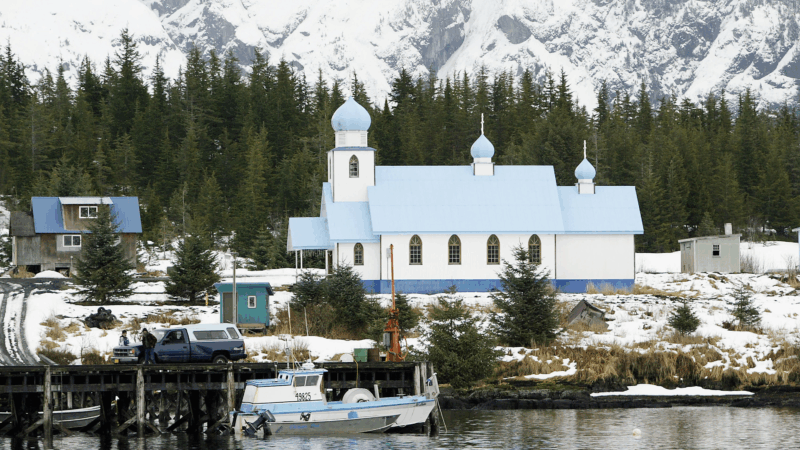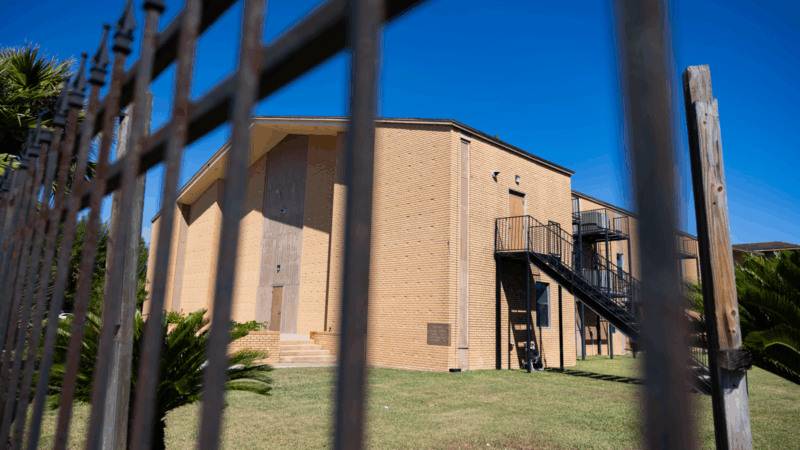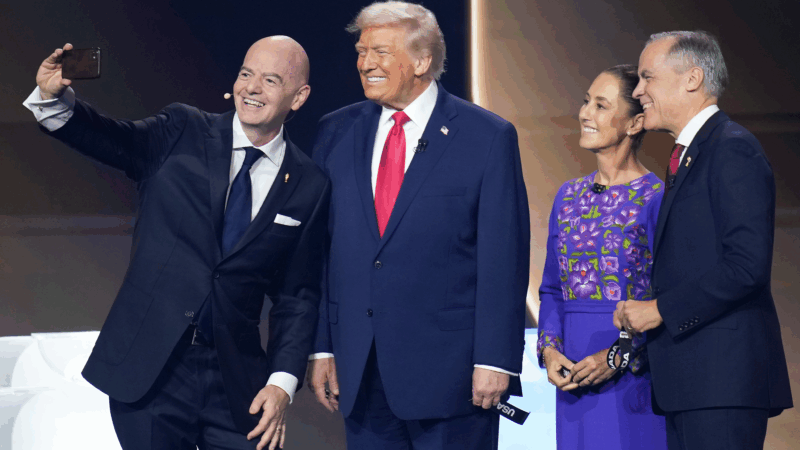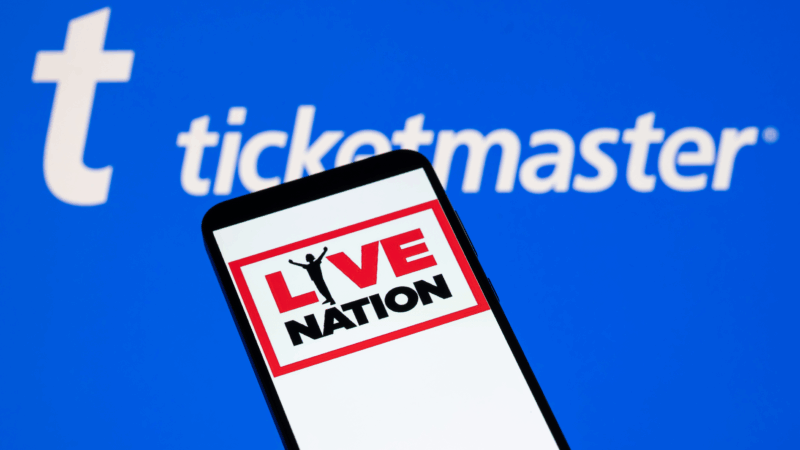Alaska was once a full-fledged Russian colony. Now it’s hosting a U.S.-Russia summit
Russia lost a war in Crimea in the 1850s, leaving the country deep in debt. To ease that burden, Russia cut a real estate deal with the U.S. government, selling its colony of Alaska to the Americans.
Now, Presidents Trump and Russian leader Vladimir Putin will hold a summit Friday in Alaska to discuss another difficult and costly Russian war involving Crimea, one of the territories Russia has captured in its fight with Ukraine.
The decision to meet in Alaska appears mostly practical — it’s where the U.S. and Russia almost touch, separated by just 55 miles of the Bering Strait. Yet beyond geography, there’s also symbolism and a fascinating shared history.
Alaska was a full-fledged Russian colony from 1799 to 1867. Some Russians, including Kremlin envoy Kirill Dimitriev, are pointing to that period on social media, posting photos of Russian Orthodox Churches, with their onion domes, that were built in Alaska in the 19th-century and still stand.
“Some Americans might know that we bought Alaska from Russia, but they don’t know necessarily that it was a real colony there,” said Lee Farrow, a history professor at Auburn University at Montgomery and author of Seward’s Folly: A New Look at the Alaska Purchase.
“It wasn’t just a piece of territory that [the Russians] stuck a flag in. They had a strong presence in California as well.”
Farrow was referring to Fort Ross, an outpost the Russians established in what’s now part of Sonoma County in northern California.
Sold for a pittance
Russia’s decision to sell Alaska was motivated by its need to pay off war debts accumulated during the 1853-56 Crimean War, which Russia lost to the combined forces of Britain, France and the Ottoman Empire.
By this time, Russian hunters in Alaska had killed off most of the accessible bears, wolves, otters and other animals with valuable furs and pelts, and therefore the Russians saw little economic reason to stay.
Alaska seemed more a liability than an asset, and was extremely remote even by the standards of the Russian Empire. It was sometimes called “Siberia’s Siberia.”
After brief negotiations in the spring of 1867, the U.S. agreed to pay $7.2 million, which works out to 2 cents per acre. Alaska cover more than a half-million square miles and is by far the largest U.S. state.
The agreement came to be known as “Seward’s Folly,” a reference to Secretary of State William Seward who negotiated the deal under President Andrew Johnson.
Critics called Alaska a frozen wasteland, though Farrow said that description was inaccurate, then and now.
The deal attracted relatively little attention in the U.S. even though the country was rapidly expanding westward. The purchase provoked a bit of squabbling in Washington, and some newspapers argued against it, but it was never a major political issue, she said.
Little U.S. government investment
In its early days as a U.S. territory, Alaska and its indigenous people were mostly ignored. The U.S. government invested little, and the few Americans who ventured there tended to be missionaries or adventurers who were largely on their own.
Only decades later did Alaska begin to develop. Gold was discovered in 1896, Alaska became a state in 1959 and large oil reserves were found the 1950s and 60s.
There are some Russians today who think Alaska should be theirs. When Farrow went to Russia in 2017 after her book was published and spoke to groups, she could always count on a predictable question.
“In every audience there was at least one person who asked whether or not the United States had legitimately purchased Alaska,” she said. “There has been a very strong narrative in Russia that we either did not pay for it or it was a lease, and we should have returned it already.”
The Crimea link
While Alaska changed hands peacefully, Crimea is a territory that’s often been in conflict due to its strategic location as a peninsula jutting into the Black Sea.
Russia wanted full control of Crimea when it launched a war against the Ottoman Empire in 1853. The Russians expected a quick and easy victory, and did not expect Western powers to intervene.
But Britain and France joined the war against Russia, and the Russian army proved far less capable than Czar Nicholas I anticipated. Russia suffered a humiliating defeat.
In the 20th century, Crimea was part of the Soviet Union. But when the Soviet Union collapsed in 1991, Crimea became part of newly independent Ukraine.
Fast forward to 2014. Putin sent Russian troops into Crimea as he launched his invasion of Ukraine, seizing the territory without any serious fighting.
Ukraine is demanding Crimea back, and regularly carries out air strikes with drones and missiles at the Russian forces there. Crimea will have to be part of any serious peace negotiations, and could feature in the Trump-Putin summit this Friday.
Transcript:
MARY LOUISE KELLY, HOST:
Russia lost a war in Crimea in the middle of the 19th century. It left the country deep in debt, and to ease that burden, Russia cut a real estate deal with the U.S. and sold Alaska to the Americans. Now, Presidents Trump and Putin meet Friday in Alaska to discuss another difficult and costly Russian war involving Crimea. For more, we are joined by NPR’s Greg Myre. He is in Kyiv, the capital of Ukraine. Hey, Greg.
GREG MYRE, BYLINE: Hi, Mary Louise.
KELLY: So this summit, which is coming together really fast, why has Alaska been chosen as the site?
MYRE: The decision seems practical. It’s the place where the U.S. and Russia almost meet, separated by just 55 miles of the Bering Strait. But beyond geography, there’s also symbolism and a fascinating shared history. Alaska was actually a full-fledged Russian colony. Some Russians are pointing that out on social media, posting photos of Russian Orthodox churches with their onion domes that were built in Alaska in the 19th century. I spoke with Lee Farrow, a history professor at Auburn University at Montgomery and the author of a book on the U.S. purchase of Alaska.
LEE FARROW: Some Americans might know that we bought Alaska from Russia, but they don’t know necessarily that it was a real colony there – it wasn’t just a piece of territory that they had sort of stuck a flag in – and that they had a strong presence in California as well.
KELLY: And Greg, how good a deal was this for Russia to sell Alaska? It was then, and is now, very rich in natural resources.
MYRE: Well, not a good deal for the price they got – $7.2 million, which works out to 2 cents an acre when the Americans bought it in 1867. But the Russians saw it as an expensive outpost they couldn’t afford. Russian fur traders had been in Alaska for more than a half-century. They had killed off most of the bears and wolves and otters. The Russians didn’t see an economic reason to stay, and Alaska was so remote, even for Russia, it was sometimes called Siberia’s Siberia. But there are Russians today who think Alaska should be theirs. When Farrow went to Russia and spoke about her book several years ago, she always got the same question.
FARROW: In every audience, there was at least one person who asked whether or not the United States had legitimately purchased Alaska. There has been a very strong narrative in Russia that we either did not pay for it, or it was a lease and we should have returned it already.
KELLY: So interesting. What about the U.S. end of this? How was the purchase viewed here in the U.S. when it took place?
MYRE: Critics called it Seward’s folly, after Secretary of State William Seward, who negotiated the deal. They said the territory was a frozen wasteland. But Farrow says that description was inaccurate, then and now. At the time, the purchase didn’t really attract much attention outside of Washington. However, that said, the U.S. government didn’t invest much in Alaska, and the relatively few Americans who went there were missionaries or adventurers who were largely on their own. Only decades later did Alaska begin to develop. Gold was discovered in 1896. It became a state in 1959. And large oil reserves were found in the 1950s and ’60s.
KELLY: And in the few seconds we have left, I do want to focus on Crimea. It had this war in the 1850s. It is still being fought over today. Why is it so contested?
MYRE: Yeah, it’s a valuable piece of real estate on the Black Sea. Russia fought a war there in the 1850s against the Ottoman Empire, thinking they would win easily, but they didn’t. They lost. Fast forward to 2014. Crimea was part of Ukraine, but Putin seized it in an invasion, marking the start of the current war. Ukraine is demanding it back, and it’s expected to feature in the Trump-Putin summit this Friday.
KELLY: Thank you very much. NPR’s Greg Myre.
MYRE: Sure thing.
Pregnant migrant girls are being sent to a Texas shelter flagged as medically risky
Government officials and advocates for the children worry the goal is to concentrate them in Texas, where abortion is banned.
The 2026 World Cup faces big challenges with only 100 days to go
Will Iran compete? Will violence in Mexico flare up? And what about funding for host cities in the U.S.? With only 100 days left before it beings, the 2026 World Cup in North America is facing a lot of uncertainty.
A glimpse of Iran, through the eyes of its artists and journalists
Understanding one of the world's oldest civilizations can't be achieved through a single film or book. But recent works of literature, journalism, music and film by Iranians are a powerful starting point.
Mitski comes undone
She may be indie rock's queen of precisely rendered emotion, but on Mitski's latest album, Nothing's About to Happen to Me, warped perspectives, questionable motives and possible hauntings abound.
This quiet epic is the top-grossing Japanese live action film of all time
The Oscar-nominated Kokuho tells a compelling story about friendship, the weight of history and the torturous road to becoming a star in Japan's Kabuki theater.
The Live Nation trial could reshape the music industry. Here’s what you need to know
On Tuesday opening statements will begin for the federal antitrust trial against Live Nation, one of the largest entertainment companies in the world.








